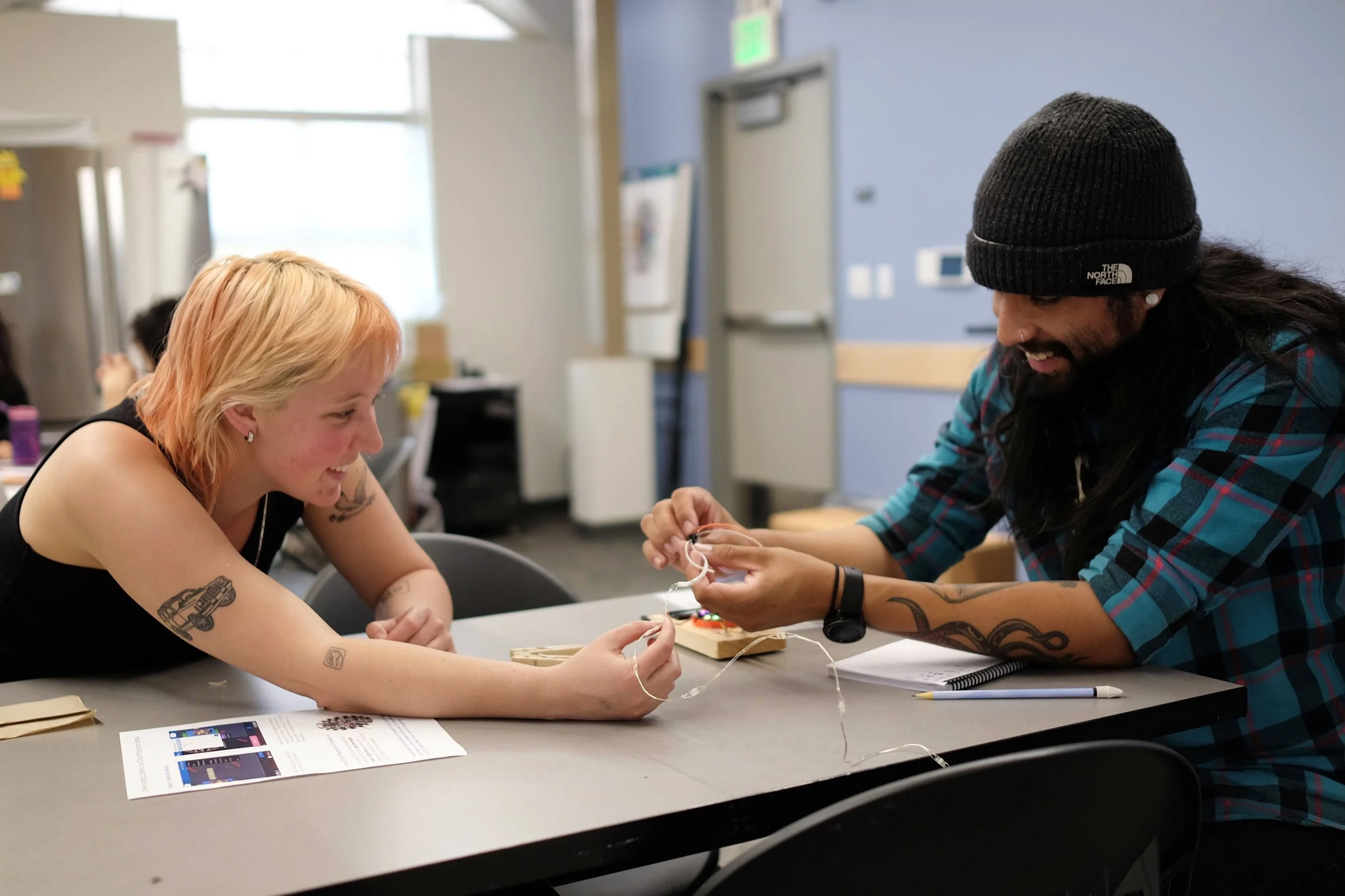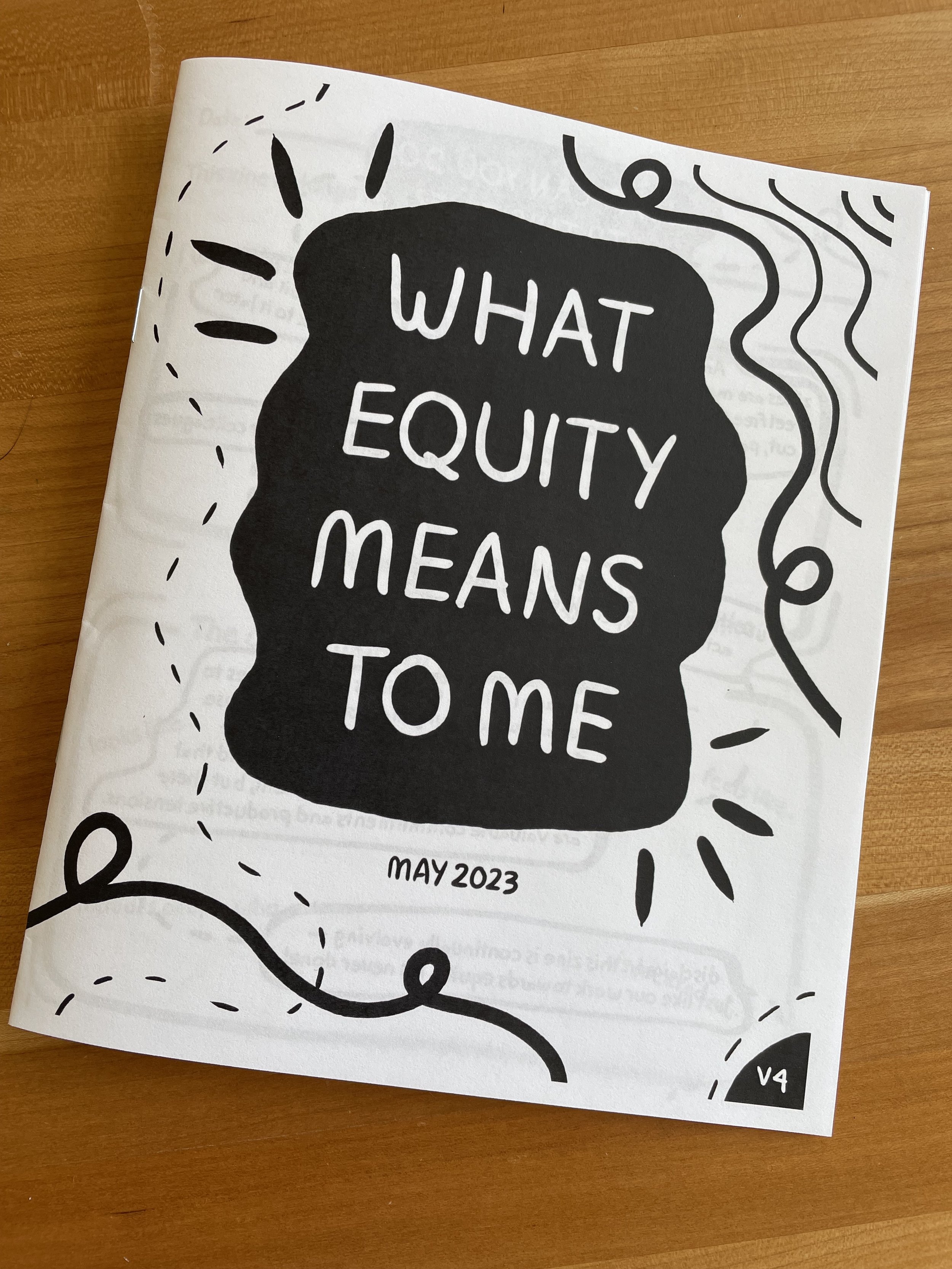Updates
The Creative Communities research group in the department of Information Science at CU Boulder is seeking PhD students to join our team.
In the fall and spring semesters of last year, we took inspiration from the Facilitating Computational Tinkering project’s OctoStudio activity “Tinker with a View” and designed an activity we called “My Dream Colorado”.
Last month our team reconnected with our Denver Public Library ideaLAB collaborators at the newly opened Central Library branch. We gathered to share updates with each other from the last 6 months as well as a new resource for facilitators: Facilitation Cards. This blog post will focus on our experience reflecting on these cards together.
We’re excited to share a new resource called the “Now What: How can we be thoughtful about our next steps?” to better support educators in their implementation work within the infrastructural realities of their contexts. Check out the zine and the facilitator guide here and continue reading to learn about how we developed this resource.
If you are familiar with our work or have met our team at conferences, you may have come across our interactive “What Equity Means to Me” zine (formerly “Equity as a Moving Target”). We have more recently started sharing our “Now What” zine that focuses more on supporting the implementation and sustainability of learning innovations . Making and sharing these zines has been really rewarding for our team and met with so much enthusiasm from participants that we are currently scheming about how we can make even more.
Last month Mimi and I (Ronni) attended Play Make Learn (PML) in Madison, Wisconsin from July 17th-19th. Play Make Learn is an annual conference around the “design, research and practice of playful learning, games for learning and positive social impact, making and makerspaces, STEAM education, and arts in education. PML creates an inspirational space for preK-12 educators, designers, developers, innovators, librarians, museum professionals, makers, and researchers to tinker together, share knowledge, and celebrate one another’s work.”
Creating new activities and resources like activity guides are key parts of the Facilitating Computational Tinkering (FCT) Project. But what do you do when you discover something cool that isn’t quite ready to be turned into a guide? My answer is this: a “case study”. A case study documents the cool things we’ve learned with a good amount of detail in hopes that someone else might want to pick up these ideas and continue to tinker with them. This approach to sharing in-progress ideas is inspired by FCT collaborator the Tinkering Studio’s wonderful blog, which is described as a “virtual sketchpad to share our half-baked ideas and works in progress”.
Over the last couple of months, I have given talks on how my team and I design for joy in our learning opportunities for youth and families. In April, I gave a talk for the Jan Hawkins Award for Early Career Contributions to Humanistic Research and Scholarship in Learning Technologies at AERA 2024. Then in May, I adapted this talk for a keynote for the Colorado Library Association Maker Workshop. I share here an edited version of both talks, which is organized in three parts: What do I mean when I talk about joy? How do we design for joy? And how can joy be a sustaining force?
At the start of November 2023 we had the opportunity to invite our partners at the Denver Public Library (DPL) IdeaLabs and Denver-based Clubhouse Network to visit us at CU Boulder as a part of our Bits & Threads project with the Unstable Design Lab. Twelve educators drove in from Denver and participated in a day of brainstorming, weaving workshops, and more textile fun.
Our team is excited to share a new resource for educators in the form of a zine called “What Does Equity Mean to Me"?” This zine is based on research our team conducted with informal learning educators, or facilitators, from 2020-2022. In addition to the zine, we made a facilitator guide for educators to use the zine with their peers to reflect on what equity means in their spaces and organizations together. The facilitator guide includes a sample workshop outline, facilitation tips, and other strategies that we’ve gathered from our experiences facilitating these sessions with educators.
Featured Project
Family Creative Learning is a workshop series that engages children and their parents to learn together — as designers and inventors — through the use of creative technologies. We designed the workshops to build on families' relationships and cultural backgrounds and to strengthen their social support and expertise around computing.










